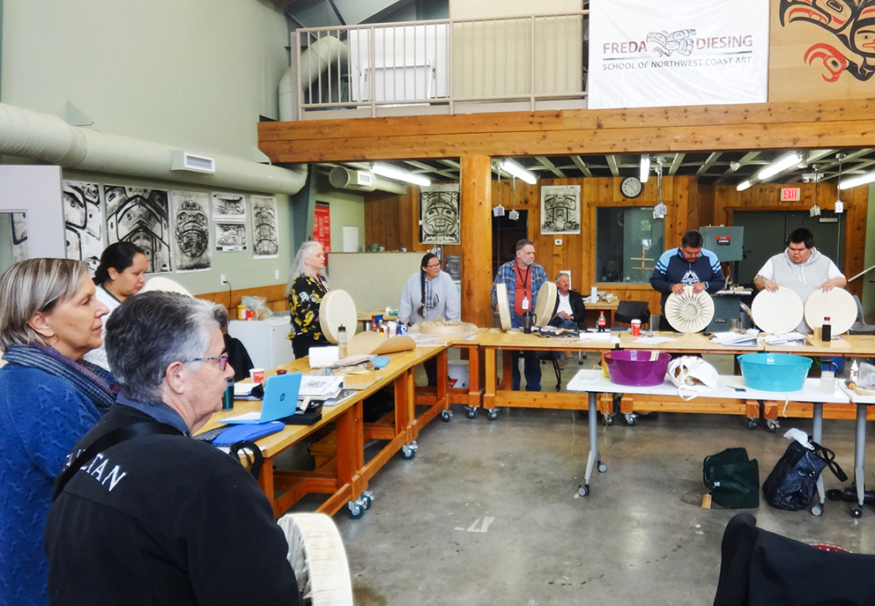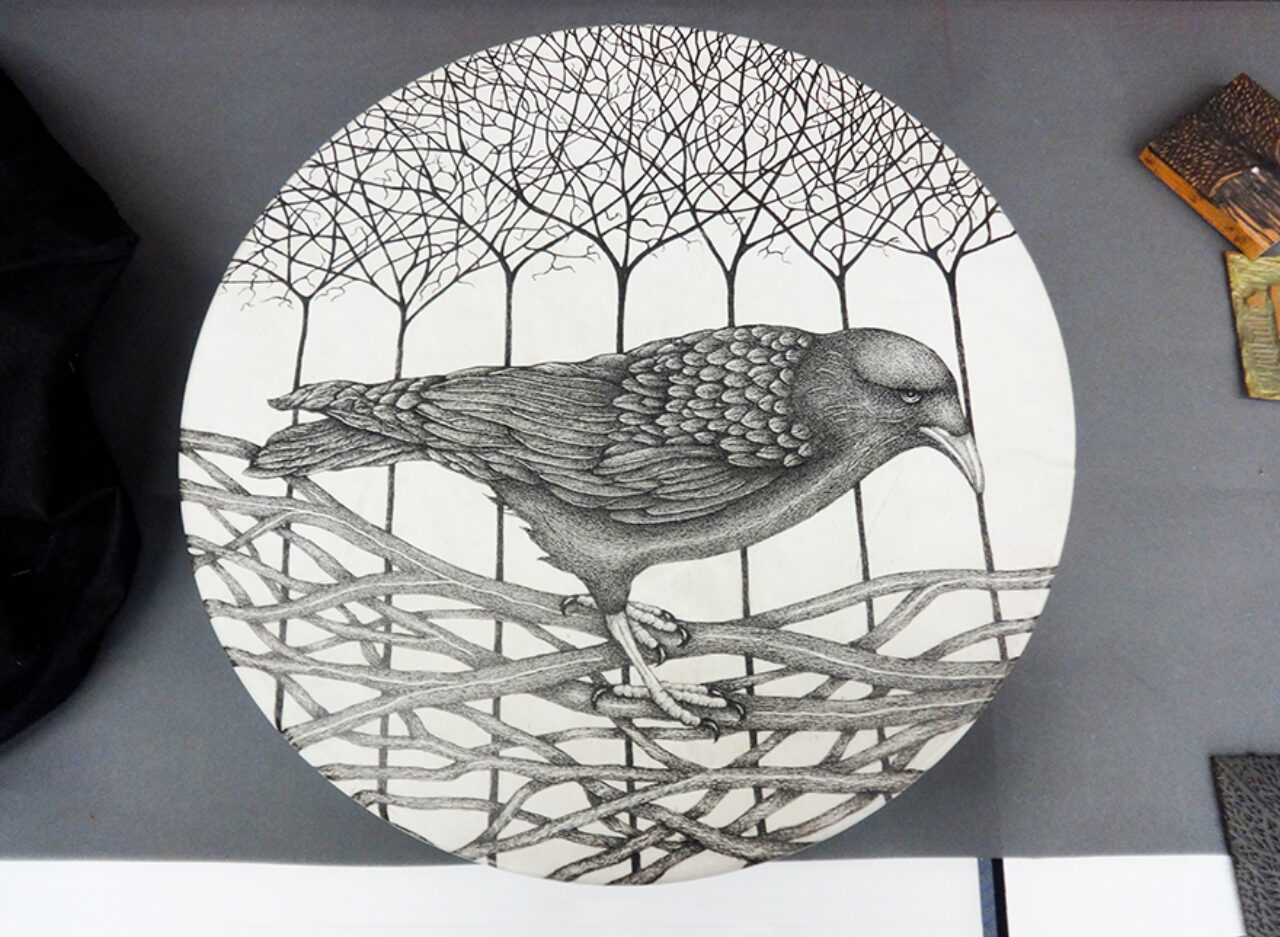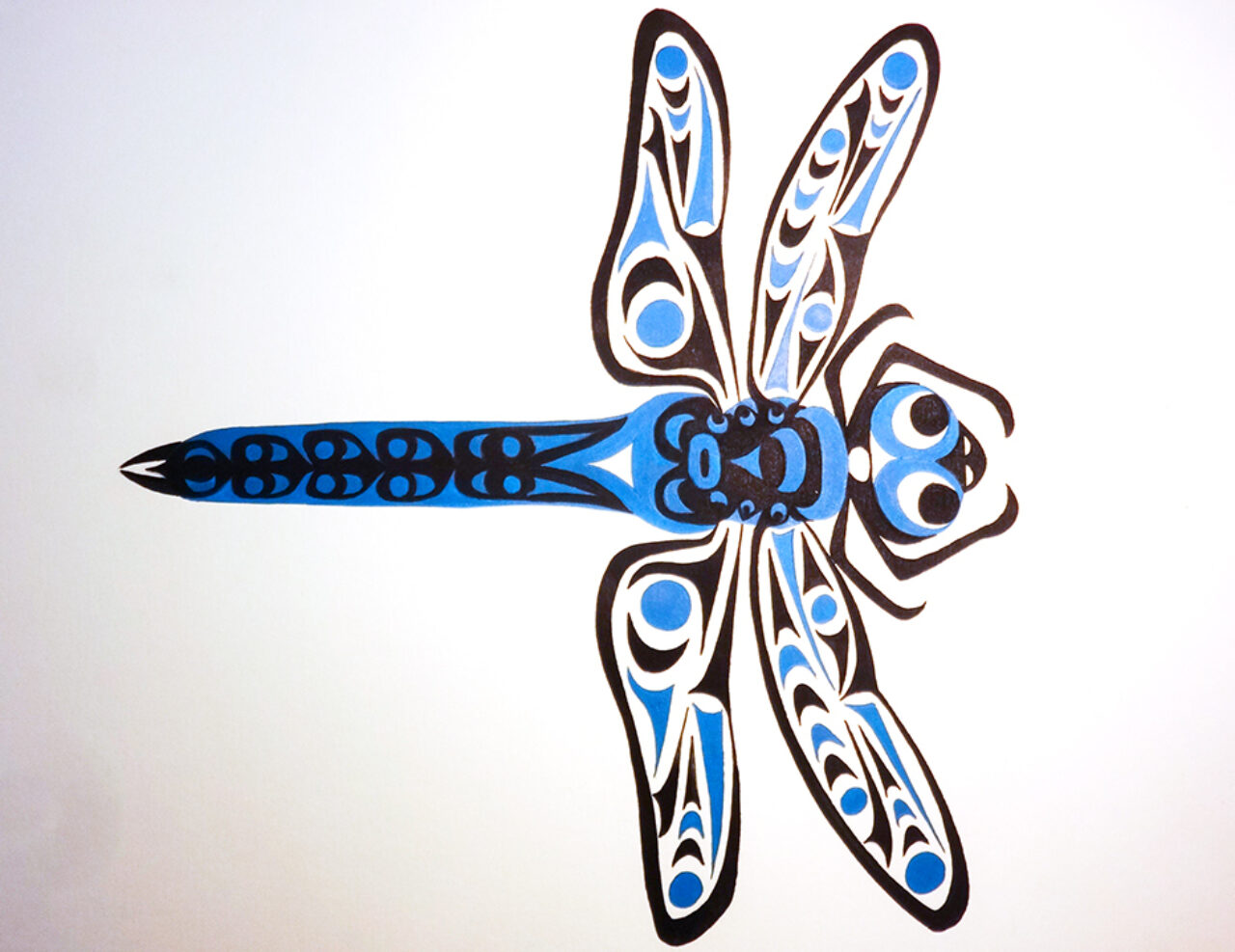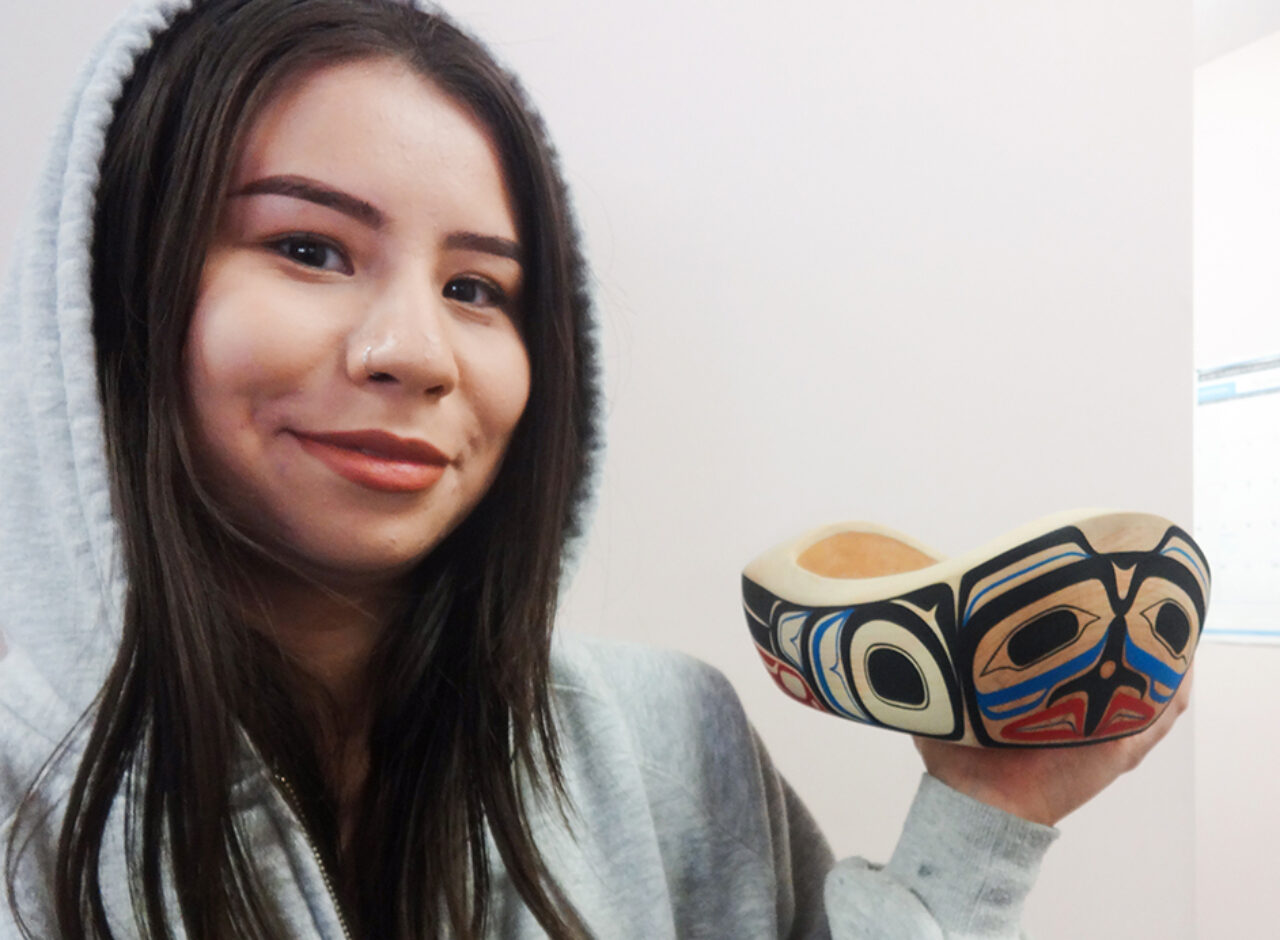ECU faculty commend graduates of Indigenizing artist-based B.C. business program

Posted on | Updated
For the first time, faculty from Emily Carr collaborated with the Freda Diesing School of Northwest Coast Art to share their expertise with students in the school's summer residency program.
Emily Carr University of Art + Design faculty are applauding a recent group of graduates from the Aboriginal Canadian Entrepreneurs (ACE) artist residency at the Freda Diesing School of Northwest Coast Art at Coast Mountain College in Terrace, BC.
Building on the strength of the cultural practice workshops seen in Emily Carr's Aboriginal Gathering Place, Brenda Crabtree (Emily Carr’s director of Aboriginal Programs), Connie Watts (associate director of Aboriginal Programs) and Lawrence Lowe (an Emily Carr graduate and former ECU Associate Registrar) participated in the ACE program this summer as part of an initiative to train Indigenous students in the material elements of their art practices.
Brenda and Connie were effusive in their praise of ACE participants, lauding the scope of their talents and their openness to exploratory risk-taking. Both expressed their gratitude for being included in the project, noting it was personally meaningful to them to see their students feel “culturally safe,” as well as “artistically supported.”
“We were really enthusiastic to participate,” Brenda said at the end of June, having recently returned from her work at Freda Diesing. It was inspiring, she added, “not only to work with Aboriginal artists and an exciting program, but to be able to add our expertise to the program.”
ACE participants spent May and July, 2019, living in residence at Coast Mountain College in Terrace, where they learned practical skills to help them build capacity as Indigenous artists looking to establish a sustainable, arts-based livelihood. Communications, sales, marketing, and the fundamentals of entrepreneurship all form parts of the ACE core curriculum.
But 2019 represents the first time Brenda, Connie and Lawrence shared their years of experience as professional artists and teachers with the ACE program, meaning this year’s participants were given a first chance to explore their material art practices alongside developing their entrepreneurial skillset.
Initially, Brent Mainprize and Rob Inkster, both co-directors of the ACE program and faculty at the University of Victoria, approached Brenda to discuss the possibility of Emily Carr’s involvement with their students. Brent is a professor at UVic’s Gustavson School of Business, where he teaches entrepreneurship and Aboriginal economic development. Rob is a UVic adjunct professor, and sits on the Gustavson School of Business International Advisory Board. He is also a former Emily Carr Board Chair, as well as a self-described “serial entrepreneur.”
After a further meeting with Rob, both Brenda and Emily Carr’s President and Vice-Chancellor Gillian Siddall enthusiastically supported the collaboration, eventually signing a memorandum of agreement with UVic and Coast Mountain College to formalize the agreement.
Emily Carr designed and implemented components of the Aboriginal Material Practice portion of the curriculum. Brenda taught the students drum and rattle making, Lawrence taught printmaking and Connie presented “Artists Presenting Themselves in Business” — a learning section focused on how to make choices regarding the presentation of persona and artistry in a way which will support the health of an artist’s business, art practice and self.
Emily Carr, Brenda noted, already had in place an articulation agreement enabling Aboriginal students who have successfully completed the Freda Diesing School of Northwest Coast Art program to ladder into the Emily Carr degree program. Brenda also sits on the Freda Diesing Aboriginal Advisory Committee.
This year's program boasted a 100 per cent success rate, with every one of the student cohort seeing their commitment through to its completion. All of them had amazing energy, Brenda said, while she and her colleagues got to do what they do best: teach Aboriginal material practice.
The students’ bodies of work were fully photo-documented during the course of the ACE program, leaving each of them with a living portfolio as they move out into the post-residency world.
Gillian, meanwhile, addressed the class to offer her congratulations during a graduation luncheon on the college’s Terrace campus on June 28.
The hope moving forward, Brenda said, is that the connection between ACE students and Emily Carr will remain active, and that those students will remain a part of the community into the future.


